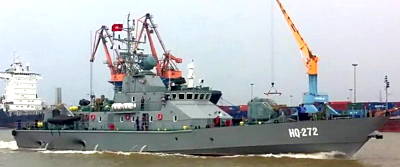WASHINGTON, July 26, 2010 — The Pentagon today condemned the actions of the group Wikileaks.org, which released thousands of classified U.S. military documents on its website last night.
“The leaking of classified information is something we take very seriously,” Marine Corps Col. Dave Lapan, a Pentagon spokesman, told reporters today.
“We are in the process right now of assessing the documents,” Lapan added.
The documents, reportedly given to several U.S. and international media weeks ago, are said to detail field reports from Afghanistan, as well as Pakistan relationships with the Taliban. The more than 90,000 documents cover the period from January 2004 through December 2009, according to news reports.
The Pentagon has yet to confirm the impact of the reports, as it’s still early in the assessment process, Lapan said.
“As they are made available, we will be looking at them to try to determine potential damage to lives of our servicemembers and our coalition partners; whether they reveal sources in methods and any potential damage to national security,” he said. “Since this was just released last night, we’re still in the process going through that assessment.”
Of the reports the Pentagon has seen, they fall into a category of basic, unit-level reporting, Lapan said.
“We’ve only seen a fraction of the documents that are reported to be out there, so until we get a look at all of them, we can’t know exactly what the extent of the damage may be,” he said.
It could take the Pentagon weeks to make such determinations, Lapan said. But much of what the Pentagon has discovered early in the investigation is that the documents are classified at a “secret” level, and not “top-secret,” which is reserved for more sensitive material, he said.
The disclosed documents reveal “the type of reporting that goes on at the tactical level on a routine basis,” the colonel said, noting examples such as roadside bomb incidences, civilian and military casualty reports and intelligence and information gathering.
“There’s nothing we’ve seen so far that is particularly relevant,” Lapan added.
At this point, he said, the Pentagon is concentrating on the information that’s been made public, and is not investigating the source of the leak. Lapan explained that any number of military and civilian defense employees have access to such documents.
Also, the Pentagon is not looking to limit the number of people with access to “secret” material, he said.
“We have lots of systems in place,” Lapan said. “And at the very top of that is the responsibility that those who are entrusted with access to that type of information protect that from unauthorized disclosure.”
The Pentagon, however, will eventually attempt to narrow down the source of the leak, he said. However, Lapan could not disclose whether a formal investigation on the matter would take place.
“As we’ve said, we put a great deal of trust and confidence in individuals not to betray their oath to their country,” Lapan said.
Source:
U.S. Department of Defense
Office of the Assistant Secretary of Defense (Public Affairs)
More News and articles can be found on Facebook and Twitter.

 von
von 